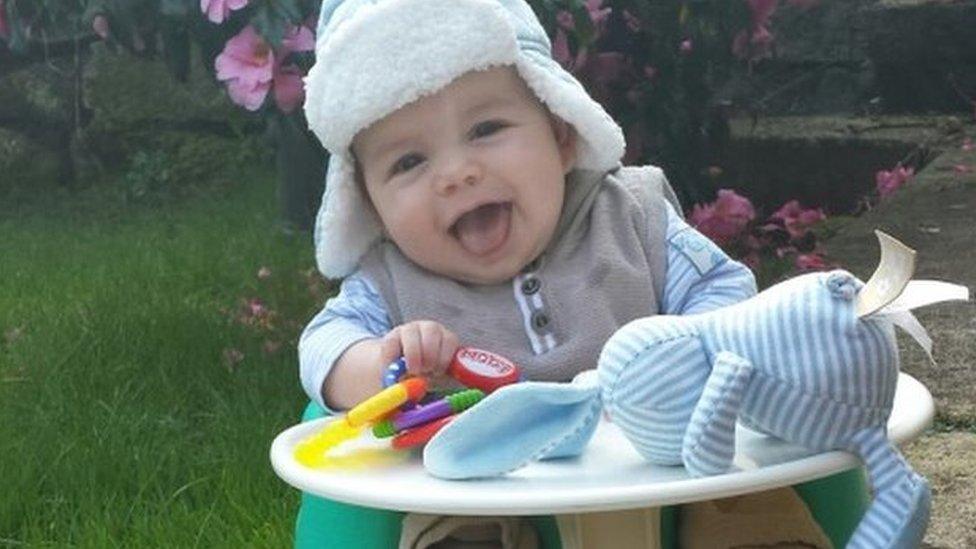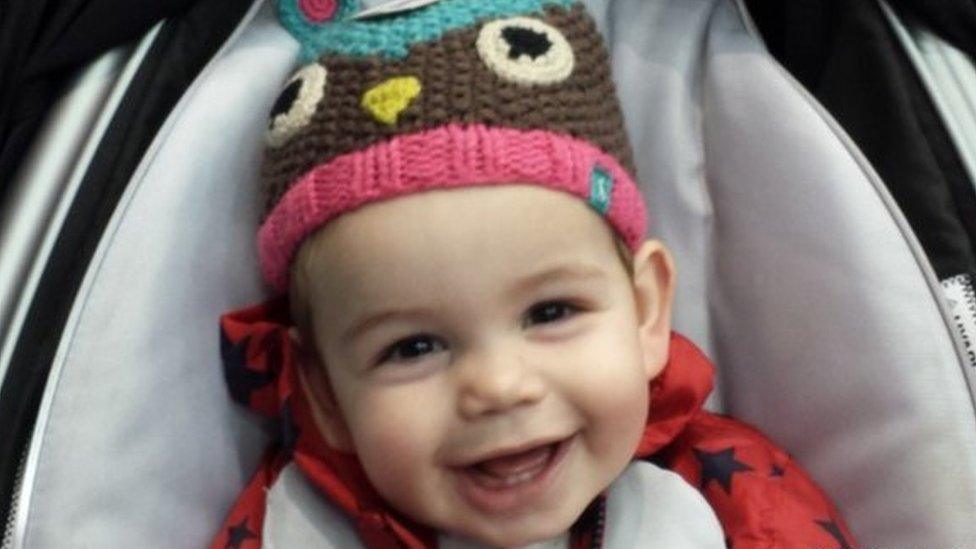The wider lessons of William's death
- Published

Much of the attention over the tragic death of 12-month-old William Mead has focused on the role of NHS 111.
That is understandable. The report into his care highlights a series of missed opportunities by the call handler who William's mother spoke to on the day before he died. It makes it clear the handler should have probed more for information about his condition and immediately referred it on to a nurse or doctor.
This is just the latest in a long line for criticism for the telephone triage and advice service since it was rolled out three years ago. Much of it has focussed on the decision to reduce the ratio of nurses and doctors to call handlers when compared to its predecessor service, NHS Direct.
The lack of clinical training means the report excused the call handler from being guilty of "serious failings". That doesn't mean though that the way the system works does not need reviewing - and NHS England's head office is already saying it will look into whether it needs to change the processes that are followed.
Wider implications
But the report, produced by NHS England's south west office, also details other problems - and they have implications for the wider health service.
William, from Cornwall, had been ill for six to eight weeks before he died and had been seen by GPs at his local practice six times before his death. They too missed opportunities to diagnose a chest infection and pneumonia which led to the sepsis that killed him.
One of the visits was made two days before his death when his heart rate was not taken. It says it should have been.
By this point the sepsis would have taken hold and so, in all likelihood, William's heart rate would have been raised and, if indentified, should have led to him being referred for help.
The report excuses individuals of blame - and repeatedly makes the point that sepsis is often difficult to spot and there needs be greater understanding of the condition. But it does raise the question of whether these missed opportunities were a result of the pressures being placed on GPs, particularly not to make referrals to under-strain hospitals or prescribe antibiotics.
The actions of the out-of-hours GP who got in touch with the parents following the NHS 111 call was also highlighted. This was on a Saturday, the day before he died. The medic advised William's mother to let him sleep. If the medic had had access to William's medical records he might have insisted on seeing William.
But the goal of achieving fully shared patient records across the NHS is still one that has not been met despite repeated attempts.
Finally, the report raises the issue of services at weekends - and the support people get. Both the GP practice and out-of-hours doctors told William's parents to get back in touch if his condition worsened. But the investigators felt this was too vague, especially given the limited medical help available at weekends.
NHS bosses are now promising the lessons will be learned from William's death. His mother, Melissa, says they have to be.
- Published26 January 2016
